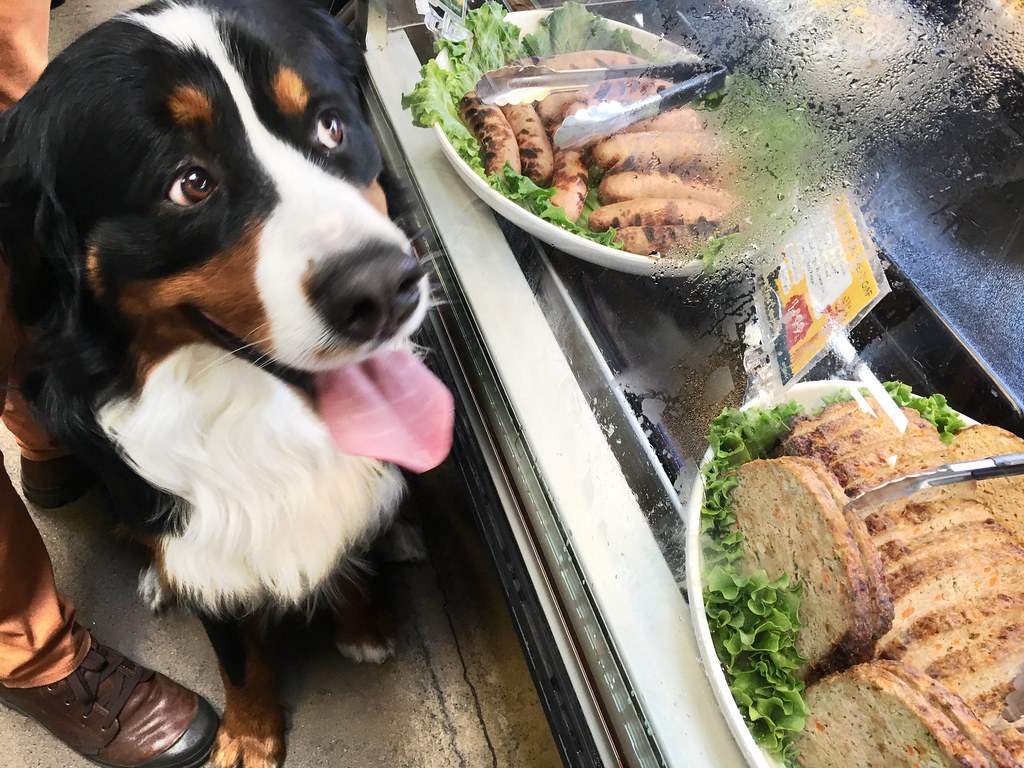Why is My Dog Always Hungry
A Comprehensive Guide
Have you ever wondered why your dog is always hungry? Many dog owners face this puzzling behavior, and it’s important to understand why. In this blog, we’ll explore the various factors that might be making your dog always feel hungry, from medical conditions to behavioral issues, and offer practical advice on managing their appetite.
Understanding Dog Hunger

Normal Eating Patterns in Dogs
Dogs, like humans, have differed eating habits. Typically, a healthy dog will have a good hunger, but the amount they eat can depend on their age, breed, and activity level. Puppies, for example, require more frequent meals due to their rapid growth, while adult dogs might eat once or twice a day.
Factors Affecting Appetite
Several factors can influence a dog’s appetite. Genetics plays a significant role; certain breeds are known for their voracious appetites. Age is another factor—puppies and younger dogs generally have higher energy needs and thus may appear hungrier. Activity level also matters; highly active dogs will naturally require more food.
Medical Reasons for Increased Hunger

Why is my dog always hungry? One potential reason could be medical conditions. Let’s explore some common health issues that can lead to increased hunger.
Hyperthyroidism
A disease known as hyperthyroidism occurs when the thyroid gland generates too much thyroid hormone. This can speed up your dog’s metabolism, making them hungrier than usual. Symptoms include weight loss despite increased food intake, hyperactivity, and increased thirst and urination. If you suspect hyperthyroidism, consult your vet for a blood test and appropriate treatment.
Diabetes Mellitus
Increased hunger is also a possible side effect of diabetes. When a dog has diabetes, their body cannot effectively use glucose, leading to increased hunger, weight loss, and excessive thirst and urination. Managing diabetes typically involves insulin injections and a specialized diet.
Cushing’s Disease
Cushing’s disease, or hyperadrenocorticism, occurs when the body produces too much cortisol. Dogs with this condition often exhibit increased hunger, weight gain, excessive drinking and urination, and a pot-bellied appearance. Diagnosis involves blood tests and imaging, and treatment may include medication or surgery.
Intestinal Parasites
Parasites like roundworms, hookworms, and tapeworms can live in your dog’s intestines, consuming nutrients meant for your pet. This can lead to increased hunger as your dog tries to make up for the nutrients lost to the parasites. Regular deworming and fecal exams are crucial for prevention and treatment.
Malabsorption Disorders
Conditions like exocrine pancreatic insufficiency (EPI) prevent your dog from properly digesting and absorbing nutrients from food. Symptoms include chronic diarrhea, weight loss, and increased appetite. EPI is diagnosed through specific blood tests and is managed with enzyme supplements and dietary adjustments.
Behavioral Causes of Hunger

Food Obsession and Scavenging
Some dogs are naturally food-obsessed and will always be on the lookout for their next meal. This behavior can stem from their scavenging instincts. Dogs are opportunistic feeders and may eat whatever they find, even if they’re not truly hungry. This can make it seem like why my dog is always hungry is a constant question on your mind.
Learned Behavior
Dogs can learn to beg for food if they are rewarded for it. If you’ve given in to those pleading eyes in the past, your dog might have discovered that begging results in treats. Consistently feeding your dog from the table or giving them snacks can reinforce this behavior.
Attention-Seeking
Dogs are smart and can use hunger as a way to get attention from their owners. If every time they act hungry, you give them attention or food, they’ll continue to use this tactic. This behavior is often more about wanting your attention than actual hunger.
Dietary Factors
Nutrient Deficiency
If your dog’s diet lacks essential nutrients, they may feel hungrier in an attempt to obtain the missing nutrients. Ensure your dog’s food is well-balanced and meets all their nutritional needs. A poor diet might make you wonder why dogs are always hungry, even when they’re eating regularly.
Poor-quality food
Low-quality dog food often contains fillers that don’t provide adequate nutrition, leading your dog to eat more in an attempt to satisfy their nutritional requirements. Select premium dog food that contains actual meat. And vegetables as the main ingredients.
Incorrect Feeding Amounts
Overfeeding or underfeeding can disrupt your dog’s natural hunger signals. Feeding your dog the right amount based on their weight, age, and activity level is crucial. You can get help from your veterinarian to figure out the right portion proportions.
Environmental and Psychological Influences

More:
View public domain image source here
Stress and Anxiety
Just like people, dogs can eat more when they’re stressed or anxious. Major changes in their environment, like moving to a new home or the arrival of a new pet, can trigger this behavior. Identifying and mitigating sources of stress can help manage their appetite and answer the question, Why is my dog always hungry?
Boredom
A bored dog may turn to food for entertainment. Dogs need mental and physical stimulation, and without it, they may use eating as a way to pass the time. Providing toys, engaging in playtime, and ensuring regular exercise can help alleviate boredom-related hunger.
Changes in Routine
Dogs thrive on routine. Changes in their daily schedule, such as new feeding times or a different daily routine, can affect their eating habits. Maintaining a consistent schedule can help keep their appetite in check and stop you from wondering why your dog is always hungry.
How to Manage Your Dog’s Hunger
Balanced Diet
It is crucial to provide your dog with a balanced diet. Ensure their food contains the right mix of proteins, fats, carbohydrates, vitamins, and minerals. Consult your vet to choose the best diet for your dog’s specific needs.
Regular Feeding Schedule
Establish and adhere to a regular eating plan. Consistent meal times help regulate your dog’s hunger and ensure they know when to expect food. This can help answer why my dog is always hungry.
Portion Control
Measure your dog’s food portions accurately to avoid overfeeding. Use a measuring cup and abide by the feeding recommendations listed on the container for the dog food or recommended by your vet.
Healthy Treats and Rewards
Choose nutritious treats and use them sparingly. You should not give your dog more than 10% of his daily diet in treats caloric intake. Choose healthy options such as tiny portions of vegetables or specially formulated low-calorie dog treats.
Mental and Physical Stimulation
Keep your dog mentally and physically stimulated. Regular exercise, interactive toys, and training sessions can help distract them from food and reduce unnecessary hunger.
When to See a Veterinarian
Signs of Serious Conditions
If your dog’s increased hunger is accompanied by symptoms like weight loss, excessive drinking and urination, diarrhea, or changes in behavior, it’s time to see a vet. These might indicate a dangerous underlying illness that needs medical attention. It’s crucial to answer the question, Why is my dog always hungry, with professional help when needed?
Routine Check-Ups
Frequent veterinary appointments are necessary to keep an eye on your dog’s health. During these check-ups, discuss any changes in your dog’s appetite and seek advice on maintaining their wellbeing.
Diagnostic Tests
Your veterinarian could suggest diagnostic procedures like blood work, fecal exams, or imaging to determine the cause of your dog’s increased hunger. These tests help in diagnosing conditions like diabetes, hyperthyroidism, and Cushing’s disease.
Conclusion
Understanding why my dog is always hungry involves examining a combination of factors, including medical conditions, behavioral issues, dietary habits, and environmental influences. By addressing these aspects and consulting with your veterinarian, you can better manage your dog’s appetite and ensure it stays healthy and happy.
Final Advice
Monitor your dog’s eating habits closely, provide a balanced diet, maintain a consistent feeding schedule, and make sure kids have a lot of mental and physical stimulation. If you notice any worrying signs, don’t hesitate to seek professional advice from your vet. Your dog’s health and well-being depend on your vigilance and care.
Why is My Dog Always Hungry?: FAQs
Q: How much should I feed my dog to prevent constant hunger?
The dietary needs of your dog change based on age, size, exercise level, and general health. For individualized feeding recommendations based on your dog’s needs, speak with your veterinarian.
Q: Can certain medical conditions cause increased appetite in dogs?
A: Yes, underlying health issues like diabetes, Cushing’s disease, and hyperthyroidism can lead to excessive hunger in dogs. If you notice persistent hunger in your dog, consult with your vet.
Are there any supplements or vitamins that can help manage my dog’s constant hunger?
A: While supplements and vitamins are not a direct solution to managing constant hunger in dogs, they can support a healthy diet and overall wellbeing. Before introducing any supplements to your dog’s diet, speak with your veterinarian. Additionally, always provide supplements specifically formulated for dogs and avoid giving them human vitamins or medications.
Q: Can overfeeding my dog lead to constant hunger?
A: Yes, overfeeding can contribute to increased appetite in dogs. Providing measured portions at regular intervals can help regulate your dog’s hunger signals and prevent overeating. It’s essential to follow recommended feeding guidelines and avoid giving excessive treats or human food that can disrupt their diet.
Q: How do I know if my dog’s constant hunger is a behavioral issue?
If your dog is exhibiting other behaviors like begging, whining, or stealing food, it could be a behavioral issue. Consult with a professional dog trainer for tips on managing these behaviors and establishing healthy boundaries with your dog. Combining behavior modification techniques with proper nutrition can help alleviate constant hunger in dogs. However, it’s crucial to rule out any underlying health concerns first. If you’re concerned about your dog’s behavior, always consult with your vet.
YOU MAY ALSO LIKE:

